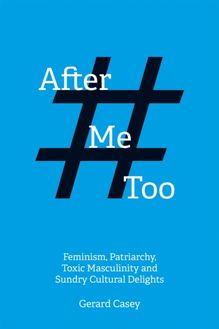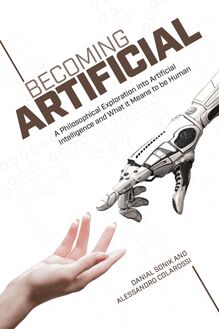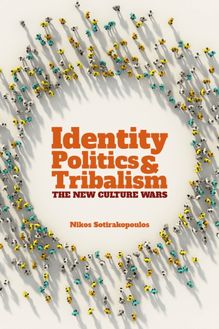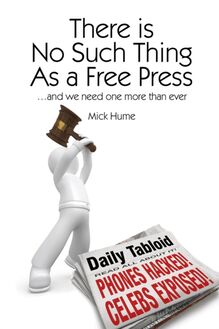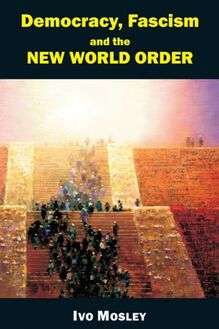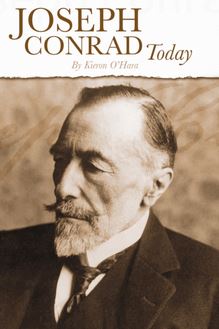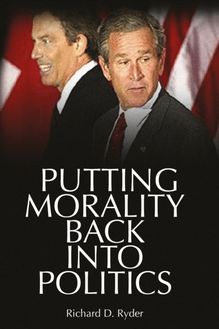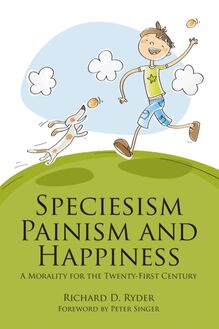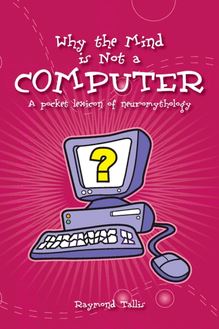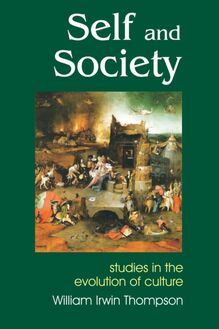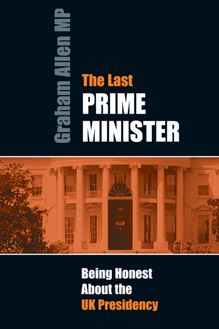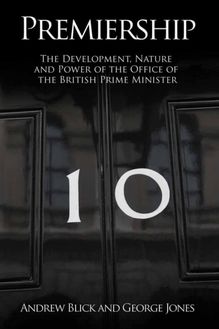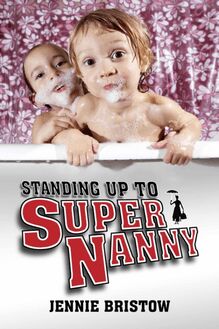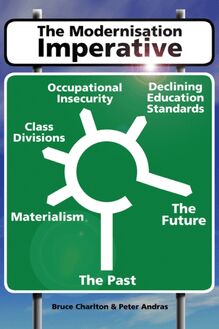-
 Univers
Univers
-
 Ebooks
Ebooks
-
 Livres audio
Livres audio
-
 Presse
Presse
-
 Podcasts
Podcasts
-
 BD
BD
-
 Documents
Documents
-
- Cours
- Révisions
- Ressources pédagogiques
- Sciences de l’éducation
- Manuels scolaires
- Langues
- Travaux de classe
- Annales de BEP
- Etudes supérieures
- Maternelle et primaire
- Fiches de lecture
- Orientation scolaire
- Méthodologie
- Corrigés de devoir
- Annales d’examens et concours
- Annales du bac
- Annales du brevet
- Rapports de stage
La lecture à portée de main
Vous pourrez modifier la taille du texte de cet ouvrage
Découvre YouScribe en t'inscrivant gratuitement
Je m'inscrisDécouvre YouScribe en t'inscrivant gratuitement
Je m'inscrisEn savoir plus
Vous pourrez modifier la taille du texte de cet ouvrage
En savoir plus

Description
Sujets
Informations
| Publié par | Andrews UK |
| Date de parution | 27 juillet 2012 |
| Nombre de lectures | 0 |
| EAN13 | 9781845403843 |
| Langue | English |
Informations légales : prix de location à la page 0,0324€. Cette information est donnée uniquement à titre indicatif conformément à la législation en vigueur.
Extrait
Title page
Earthy Realism
The Meaning of Gaia
Edited by
Mary Midgley
SOCIETAS
essays in political
& cultural criticism
imprint-academic.com
Copyright page
This collection and the Introduction copyright © Mary Midgley, 2007
Foreword copyright © James Lovelock, 2007
The Challenging, Inspiring, Irreducible Pluralism of Gaia copyright © Joan Solomon, 2007
Gaia and Holistic Science copyright © Brian Goodwin, 2007
Animate Earth copyright © Stephan Harding, 2007
Gaia’s Law copyright © Cormac Cullinan, 2007
Can We Get There from Here? Why the Gaian World-View Will Struggle copyright © John Turnbull, 2007
Human-Caused Climate Change: The Evidence copyright © Richard Betts, 2007
Do We Need To Worry About the Conservation of Micro-Organisms? copyright © David Wilkinson, 2007
The Gaia Effect: Making the Links copyright © Patricia Spallone, 2007
Can Gaia Forgive Us? copyright © Anne Primavesi, 2007
The Human Psyche and the Imminence of Climate Catastrophe copyright © John Mead, 2007
Climate Change and Spiritual Transformation copyright © David Midgley, 2007
Reconnecting a Divided World: Links Between the Global and the Local copyright © Susan Canney, 2007
Imagining Gaia: Art Living Lightly With Science copyright © Maggie Gee, 2007
Gaia and the Sacred Feminine copyright © Elaine Brook, 2007
The moral rights of the contributors have been asserted. No part of this publication may be reproduced in any form without permission, except for the quotation of brief passages in criticism and discussion.
Originally published in the UK by Societas
Imprint Academic, PO Box 200, Exeter EX5 5YX, UK
Originally published in the USA by Societas
Imprint Academic, Philosophy Documentation Center
PO Box 7147, Charlottesville, VA 22906-7147, USA
2012 digital version by Andrews UK Limited
www.andrewsuk.com
Contributors
Dr Richard Betts leads the Climate Impact Research Group in the Hadley Centre for Climate Change at the Met Office. He has a degree in Physics, a Masters in Meteorology and Applied Climatology, and a PhD in Meteorology for his thesis on ‘Modelling the Role of the Vegetated Land Surface in Climate and Climate Change.’ He has written or co-authored fifty books and articles. He was a lead author on the Millennium Ecosystem Assessment and the fourth Assessment Report of the Intergovernmental Panel on Climate Change.
Elaine Brook is a writer and photographer who spent 12 years living and working in remote areas of the Himalaya, where her knowledge of both Nepali and Tibetan enabled her to communicate easily with the people she met. She currently teaches meditation and deep ecology and gives talks and workshops bringing together insights from the arts and science. She is Director of the Gaia Partnership, a not-for-profit organization dedicated to education and awareness-raising on ecological issues. Her books include The Windhorse , Land of the Snow Lion , and In Search of Shambhala , published by Jonathan Cape. More details; www.gaiapartnership.org.
Susan Canney has worked in science, conservation and environmental policy for over 20 years. She has MAs in Natural Sciences, Landscape Design and Environmental Policy, and a doctorate in Conservation Ecology. Her current work is in using spatial tools such as remote sensing and geographical information systems to devise conservation strategies and guide their implementation. She teaches Global Ecology at the University of Oxford; is Secretary of the Gaia Network and of the Earth Systems Science Special Interest Group at the Geological Society of London, and is a part of Forum for the Future’s ‘Reconnections’ team.
Cormac Cullinan is a Cape Town based environmental attorney and author of Wild Law (Green Books, 2003). He is a graduate of the University of Natal and of Kings College, London and is an honorary research associate of the University of Cape Town. He has lectured and written widely on governance issues relating to human interactions with the environment. Cormac has worked on environmental governance related projects in more than 20 countries and has particular expertise in drafting legislation and designing governance systems. He currently manages a consultancy that advises on environmental governance issues (see www.enact-international.com) and is a director of a leading South African environmental law firm (see www.winstanleycullinan.co.za).
Maggie Gee is the author of ten novels including The Burning Book, Light Years, Grace, Where Are The Snows?, The Ice People, The Flood and My Cleaner . Her most recent publication is a collection of short stories, The Blue (Telegram 2006). The White Family was short-listed for the Orange Prize and the International Impac Prize. Her work has been translated into 11 languages and she is the first female Chair of the Royal Society of Literature. She is Visiting Professor of Creative Writing at Sheffield Hallam University.
Brian Goodwin was born in Canada where he studied biology. He then took a mathematics degree at Oxford and a Ph. D. involving biology and mathematics at Edinburgh University. He has held research and teaching positions at MIT, at the University of Sussex, and the Open University, UK, where he was Professor of Biology. He was connected with the Santa Fé Institute for a number of years in the 80s and 90s. He now teaches Holistic Science at Schumacher College in England. His interests are in developing a science of qualities that can address issues of health and quality of life in diverse areas, in promoting holistic patterns of living, and in the reunion of the arts and humanities with the sciences. His best-known book is How The Leopard Changed Its Spots: The Evolution Of Complexity (Phoenix 1995).
Dr Stephan Harding holds a doctorate in ecology from the University of Oxford. He taught wildlife ecology at the National University in Costa Rica and is now the Resident Ecologist at Schumacher College, where he is also the co-ordinator of the MSc in Holistic Science. In his spare time, Stephan teaches ecology all over the world, and has recently been appointed co-holder with James Lovelock of the Arne Naess Chair in Global Justice and the Environment at the University of Oslo, Norway. Stephan is the author of Animate Earth, Science, Intuition and Gaia (Green Books, 2006)
John Mead , after war service with the Royal Engineers, studied Philosophy, Politics and Economics at Oxford, and Social Psychology at LSE. He worked for five years for the National Coal Board and thus met in 1956 E.F. Schumacher (author of Small is Beautiful, and founder of the Intermediate Technology Development Group) by whom he was much influenced. In due course he became a Member of ITDG (now Practical Action). After a number of posts in education, he lectured in social psychology at what is now London South Bank University. He later studied with the British Association of Psychotherapists and practiced as a Jungian psychotherapist. He has a special interest in the psychological aspects of the ecological crisis, in particular climate change. He was a member of a working party formed to advise the bishops of London and Southwark on environmental policy in their dioceses. He is the author of a number of articles and papers on environmental matters and has given presentations to a range of audiences.
David Midgley studied philosophy at Manchester, Oxford and York. From 1996 to 2001 he was Director of Jamyang Buddhist Centre Leeds, where he continues to teach Buddhist philosophy and meditation. With Mary Midgley and Tom Wakeford, he founded the Gaia Network, an interdisciplinary group dedicated to exploring the intellectual and social implications of Gaia Theory. He now works at Leeds Development Education Centre, is engaged in research into philosophical aspects of Gaia Theory, and is active in the movement for local sustainable development.
Mary Midgley (DLitt) is a philosopher whose special interests are in the relations between humans and the rest of nature (particularly in the situation of animals), in the sources of morality, and in the relations between science and religion (particularly in cases where science becomes a religion). In recent years she has become much interested in the concept of Gaia, in which all these concerns come together. Until her retirement she was a Senior Lecturer in Philosophy at the University of Newcastle on Tyne in England, where she still lives. Her husband, Geoffrey Midgley, also a philosopher, died in 1997. She has three sons. Her most recent books are Science and Poetry (2001), The Myths We Live By (2003), and a memoir, The Owl of Minerva (2005), all from Routledge, London.
Anne Primavesi , formerly Lecturer and Research Fellow in Environmental Theology at the Department of Theology and Religious Studies, University of Bristol, and Research Fellow at the Centre for the Interdisciplinary Study of Religion, University of London, is currently Fellow of the Westar Institute, California and a Founding Research Fellow of the Lokahi Foundation, London. Her published books include Sacred Gaia; Holistic Theology and Earth System Scienc e (Routledge 2000), Gaia’s Gift; Earth, Ourselves and God After Copernicus (Routledge 2003 ), and Making God Laugh; Human Arrogance and Ecological Humility (Polebridge Press 2004). She contributed the entry on ‘Gaia’ in Encyclopaedia of Religion (Macmillan Reference, 2 nd ed., 2004), the entry on ‘Ecofeminist Theology’ in Cambridge Dictionary of Christianity (Cambridge University Press 2006) and the entry on ‘Ecology’ in the Blackwell Companion to the Bible and Culture (2006).
Patricia Spallone worked for 12 years as a biochemist at the University of Pennsylvania Medical School (US) before moving to Britain where s
-
 Univers
Univers
-
 Ebooks
Ebooks
-
 Livres audio
Livres audio
-
 Presse
Presse
-
 Podcasts
Podcasts
-
 BD
BD
-
 Documents
Documents
-
Jeunesse
-
Littérature
-
Ressources professionnelles
-
Santé et bien-être
-
Savoirs
-
Education
-
Loisirs et hobbies
-
Art, musique et cinéma
-
Actualité et débat de société
-
Jeunesse
-
Littérature
-
Ressources professionnelles
-
Santé et bien-être
-
Savoirs
-
Education
-
Loisirs et hobbies
-
Art, musique et cinéma
-
Actualité et débat de société
-
Actualités
-
Lifestyle
-
Presse jeunesse
-
Presse professionnelle
-
Pratique
-
Presse sportive
-
Presse internationale
-
Culture & Médias
-
Action et Aventures
-
Science-fiction et Fantasy
-
Société
-
Jeunesse
-
Littérature
-
Ressources professionnelles
-
Santé et bien-être
-
Savoirs
-
Education
-
Loisirs et hobbies
-
Art, musique et cinéma
-
Actualité et débat de société
- Cours
- Révisions
- Ressources pédagogiques
- Sciences de l’éducation
- Manuels scolaires
- Langues
- Travaux de classe
- Annales de BEP
- Etudes supérieures
- Maternelle et primaire
- Fiches de lecture
- Orientation scolaire
- Méthodologie
- Corrigés de devoir
- Annales d’examens et concours
- Annales du bac
- Annales du brevet
- Rapports de stage
